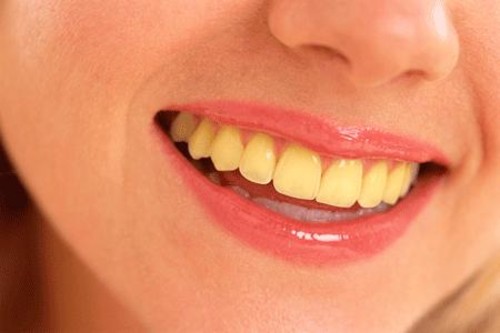Wobbly incisors? Bloody gums? Some dental issues are emergencies, but others require little more than common sense and elbow grease. Either way, when your teeth start talking, listen up.

1) Sharp tooth pain
Have you ever bit down on a slice of angel-food cake and, weirdly, experienced a pain that shoots up your tooth, to the very root? It’s a sign of tooth decay—and more than likely, a sign that your diet should be lower in sugar. The sugar hosts a thriving bacteria, creating a hole that causes sensitivity, and eventually, cavities.
How worried should I be?
If it happens once in a while, don’t worry about it. But more than once a week means it’s time for a visit to your dentist.
2) Specific toothache or generalized aching

A toothache is like an in-law—the pain is manageable for a day or two. However, pain in your teeth that lasts longer should get your attention. Dental pain that lasts a week or more may be a sign you’ve been grinding your teeth—been stressful at work lately?—or could be indicative of deeper underlying problems. Either way, get to the dentist—and give some thought to stress and how well you’re coping with it.
How worried should I be?
Persistent pain is distressing enough. If you notice swollen gums or glands, you may be looking at a root infection, also known as an abscess. Do not pass go or collect $200—get your feet moving to the dentist.
3) Swollen, red, or bloody gums
These are potentially serious symptoms, but it’s important not to overreact (at first). They may be the result of pregnancy or other hormonal changes—no big deal. They could also indicate that your bacterial cultures are getting too aggressive—a bigger deal.
How worried should I be?
If diligent brushing and flossing takes care of the problem, worry not. But if the redness, bleeding, and irritation persist more than a week—and this is a good rule for just about everything—it’s time to see a professional. With your teeth, it’s likely periodontal disease.
4) Yellow or stained teeth

Think of yellowing teeth the way you would wrinkles or a receding hairline—unpleasant, perhaps, but harmless. They mean only that you’ve made it a respectable distance in life. Your stains almost certainly come from drinking coffee, tea, wine, or other dark or staining liquids. Are you going to give them up? Probably not.
What can I do?
Whitening toothpastes, strips, or a trip to your dentist can be a help the problem. It’s also a good idea to rinse or brush your teeth after consuming the offending beverages, to prevent staining.
5) Suddenly crooked or loose teeth

If you’re enjoying this article while your teeth—who knows why?—are enjoying newfound mobility, your life priorities, I’m sorry to say, are backwards. Loose and crooked teeth, or ones that fall out altogether, are a symptom of periodontal disease, the process by which tartar becomes plaque, then spreads up your gums to bones around your teeth and jaw.
How worried should I be?
More. Cleaning teeth properly (brushing twice a day, flossing daily, cleanings from your dentist twice a year) won’t save you now. See a dentist immediately about freshly loose or crooked teeth.
6) Mouth sores and lesions
These can be tricky. Although they’re painful, most mouth sores are the result of burns (hot soup), or overconsumption of citric or spicy food. Your window of worry should be three days—shorter, forget about it; longer, get it checked out.
What should I do?
If the sores linger, it could point to a Vitamin A deficiency. Vitamin A is important for collagen and connective tissues. A good idea: go see your doctor, and include more good Vitamin A sources—sweet potatoes, spinach, and carrots—in your diet.

